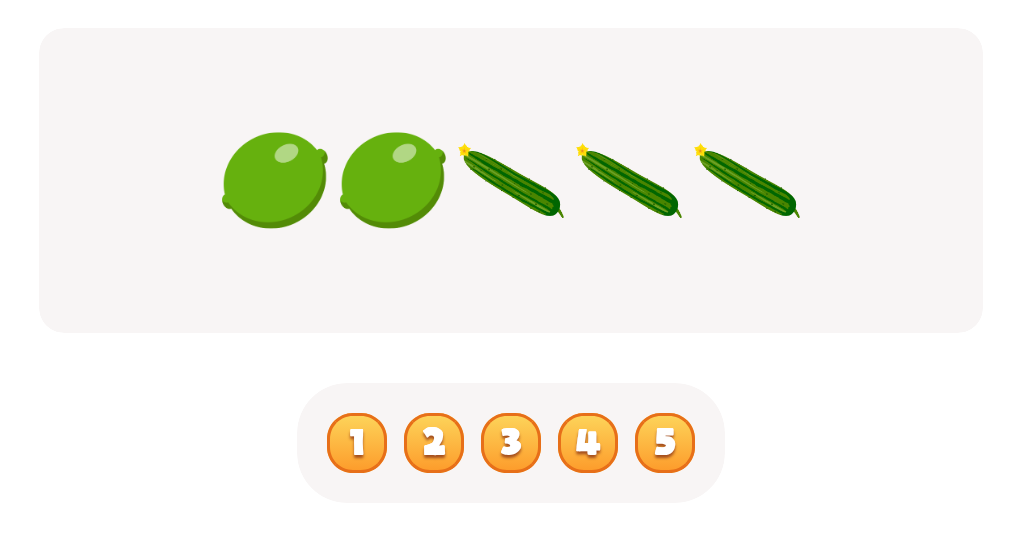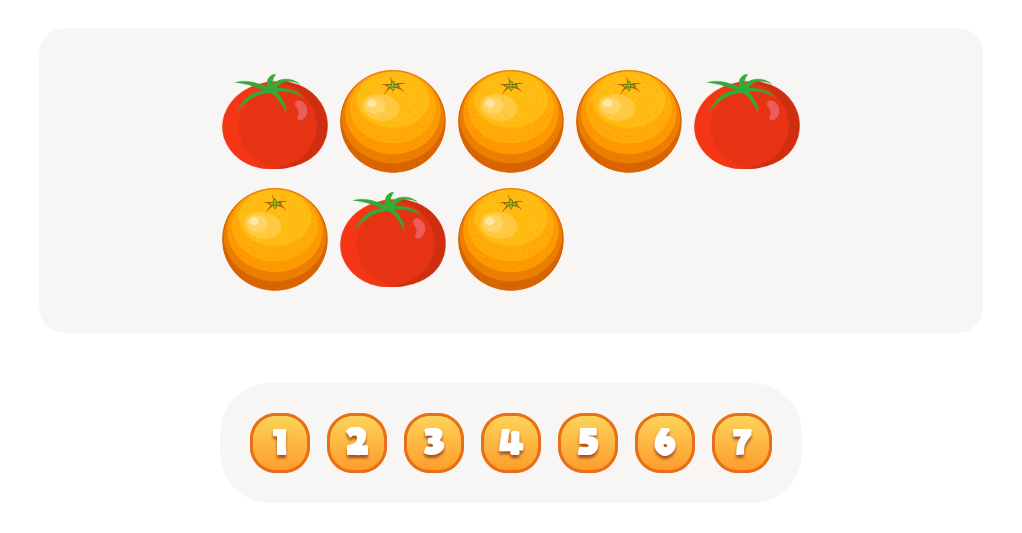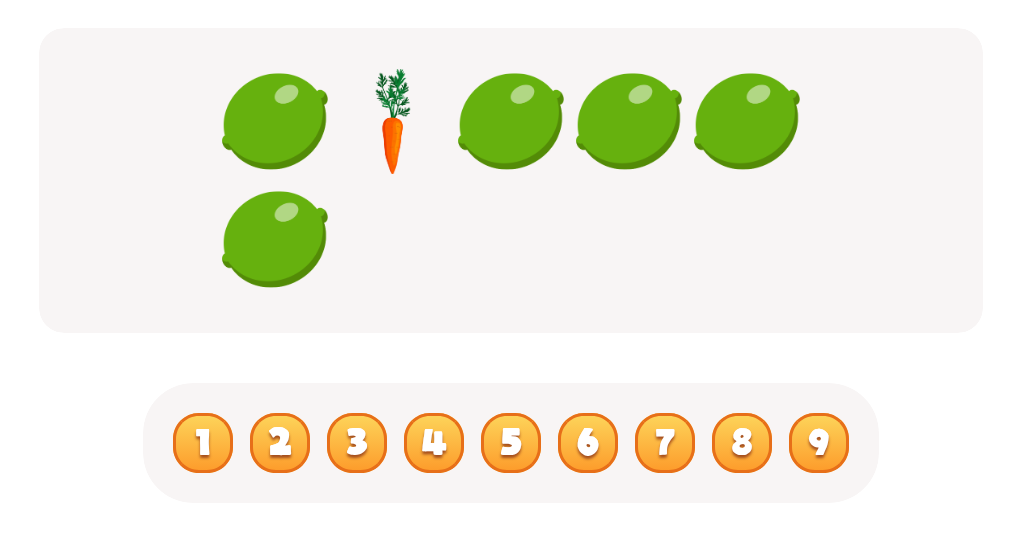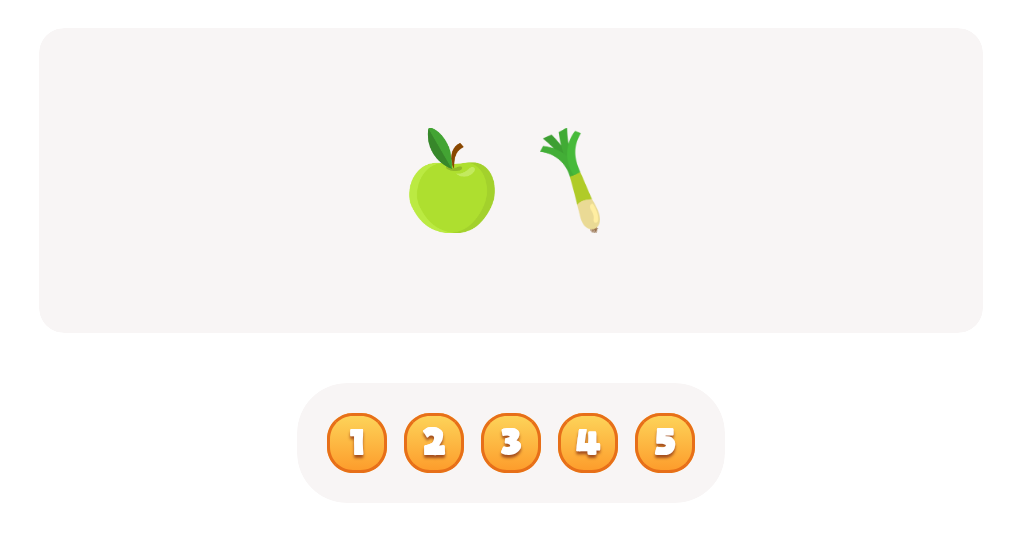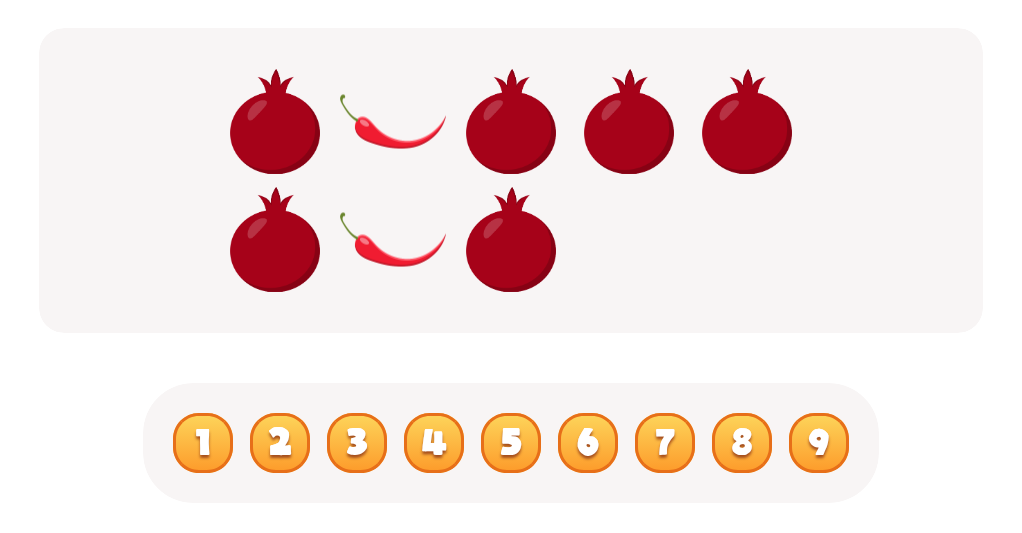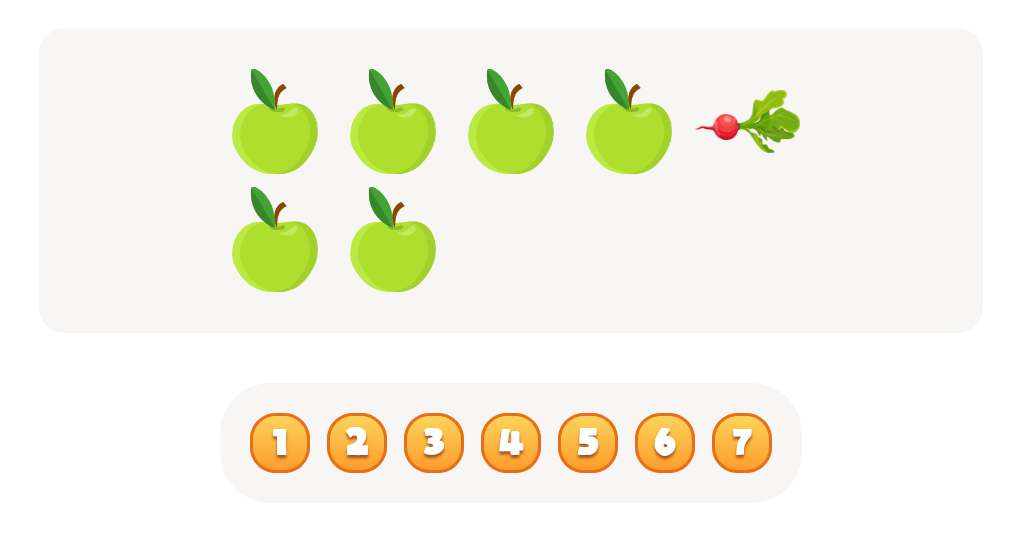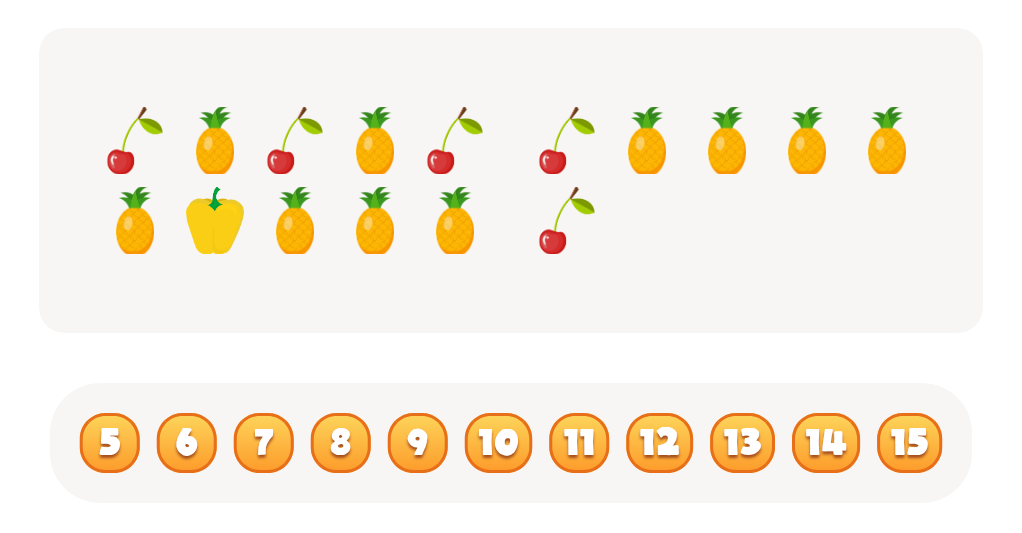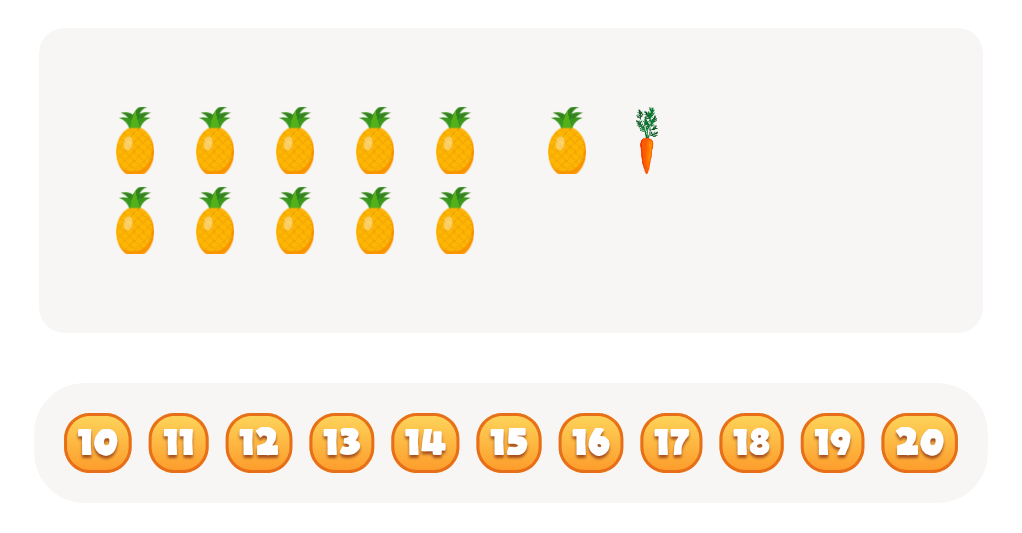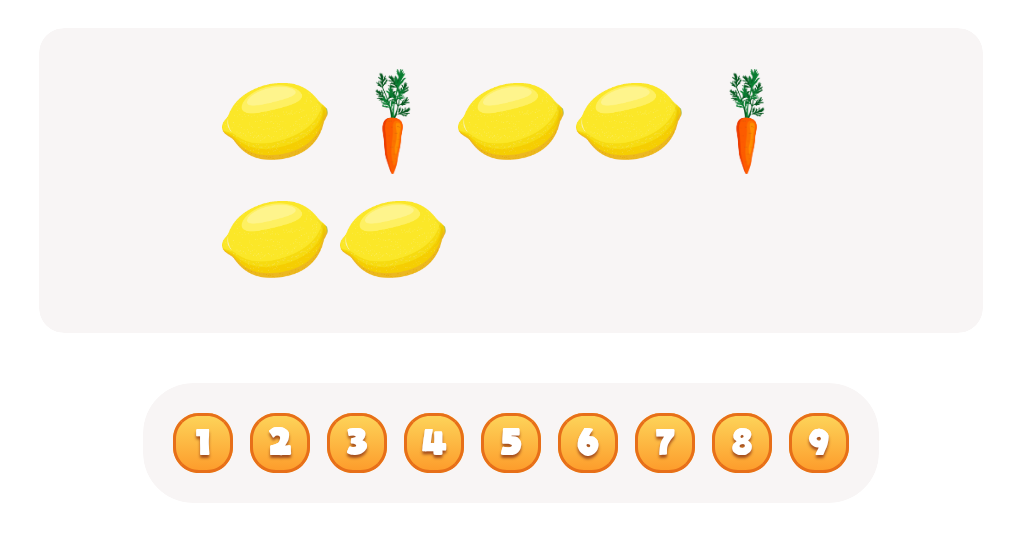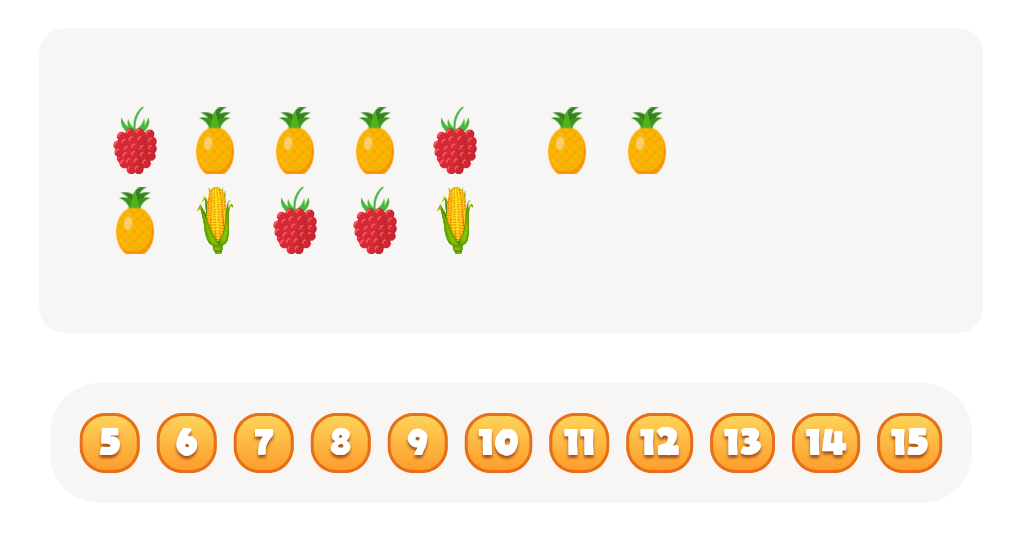Analytical skills Plants and Animals Worksheets for Ages 4-8
5 filtered results
-
From - To
Unlock your child's potential with our engaging "Analytical Skills Plants and Animals Worksheets" designed for ages 4-8! These thoughtfully crafted activities foster critical thinking, observation, and problem-solving skills through fun, age-appropriate tasks. Kids will explore the fascinating worlds of plants and animals while enhancing their analytical abilities—inspiring curiosity and a deeper understanding of nature. Each worksheet includes vibrant illustrations and interactive elements to keep learners entertained while reinforcing essential science concepts. Perfect for home learning or classroom use, these worksheets are a wonderful way to nurture young minds and spark a lifelong interest in the environment. Discover, learn, and grow today!
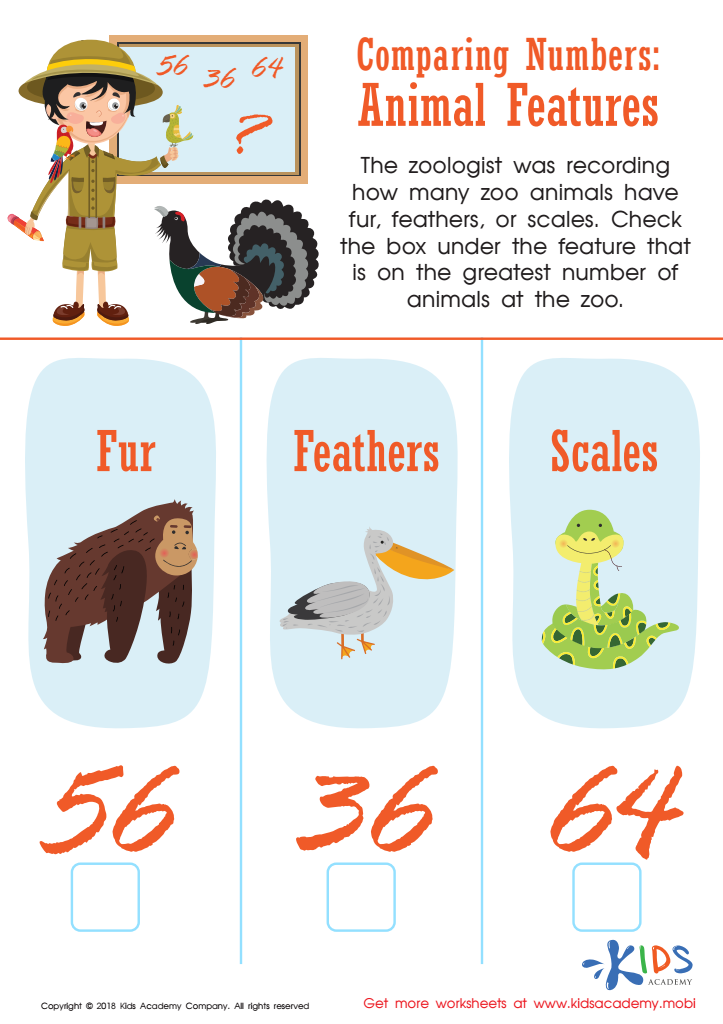

Animal Features Worksheet
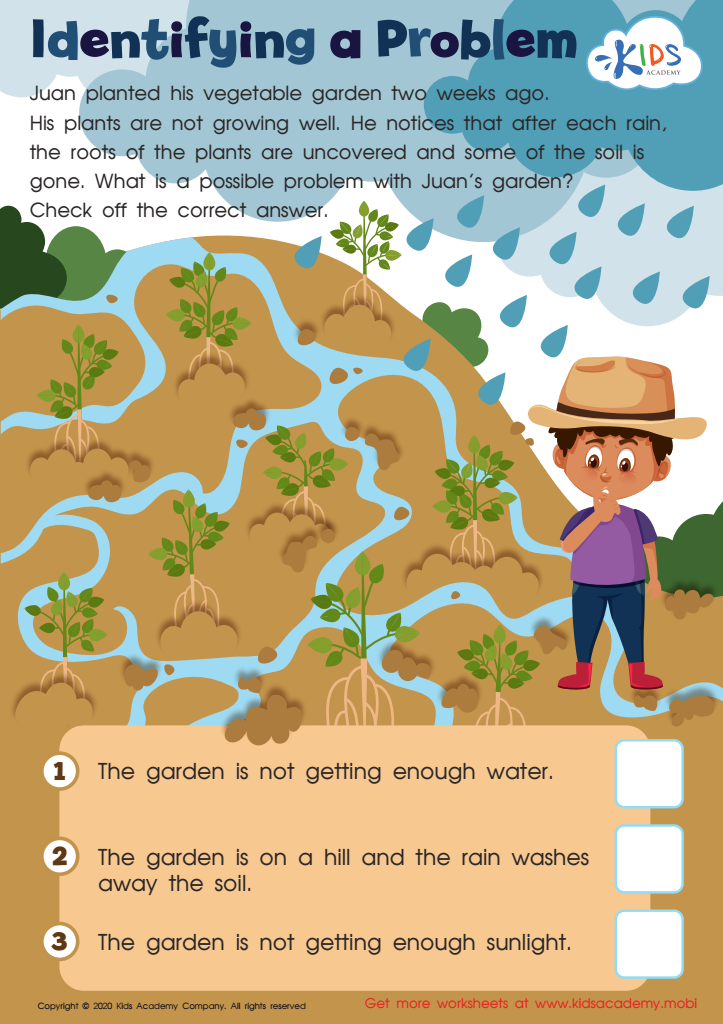

Identifying a Problem Worksheet
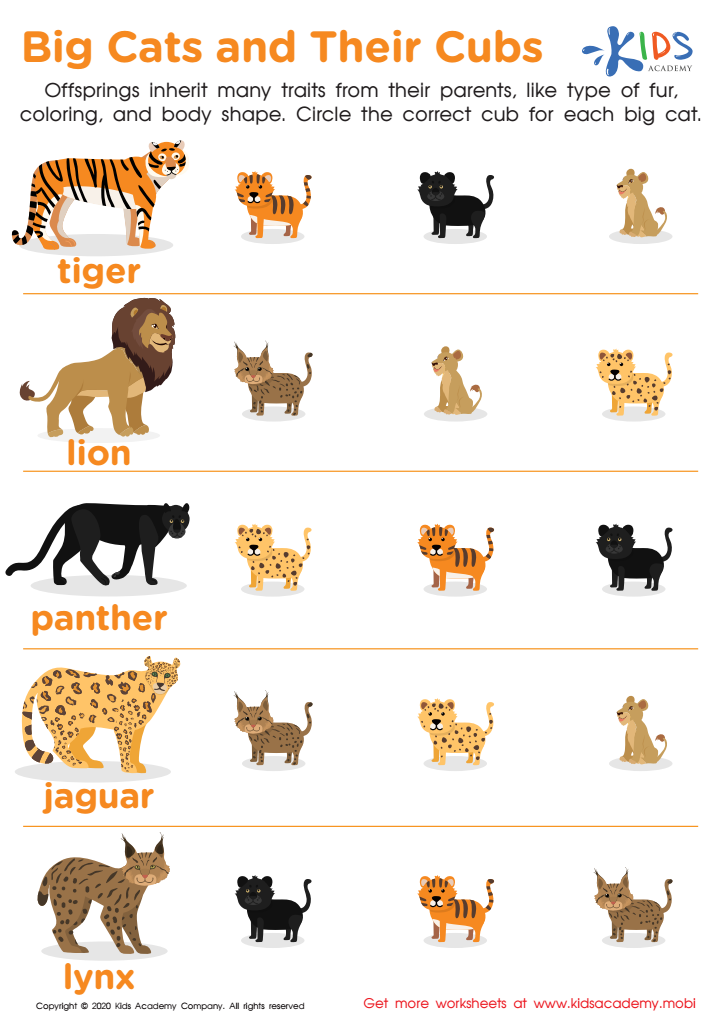

Big Cats and Their Cubs Worksheet
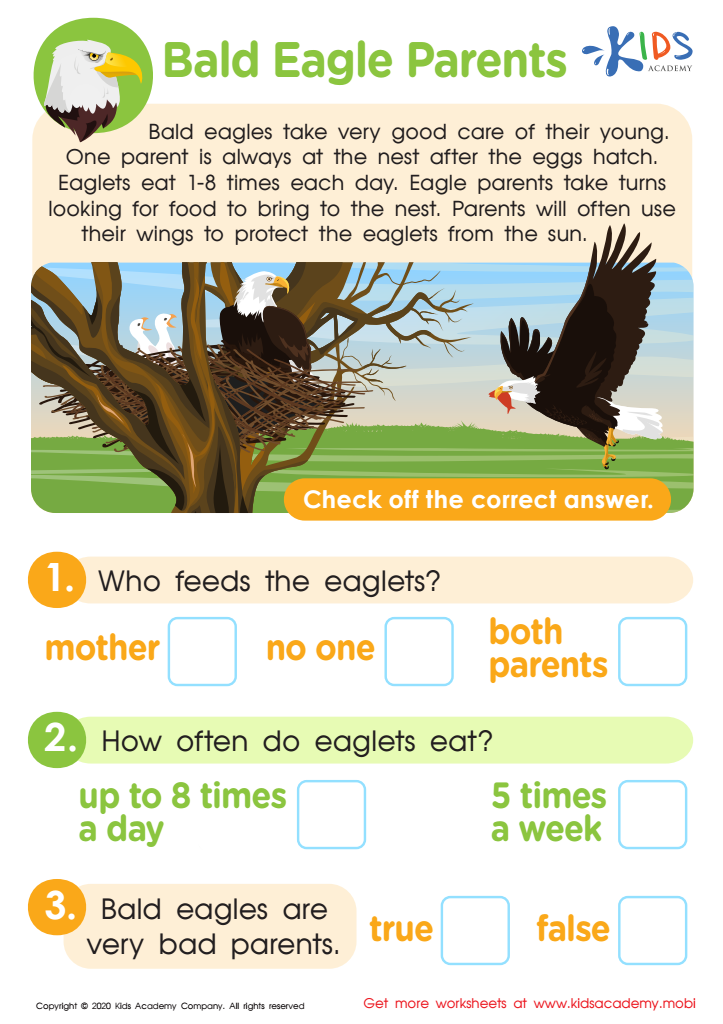

Bald Eagle Parents Worksheet
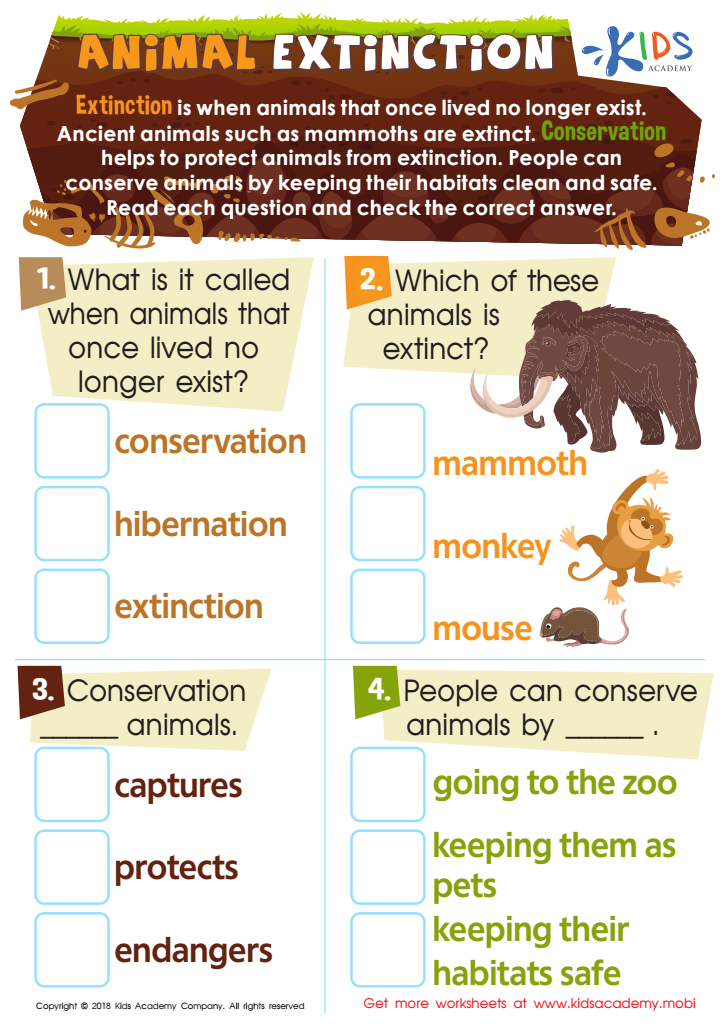

Animal Extinction Worksheet
Analytical skills are crucial for young learners, particularly in understanding complex concepts like plants and animals. For children aged 4-8, these skills enable them to observe, categorize, and draw connections within their environment, fostering critical thinking and problem-solving capabilities. This foundational stage of education helps them learn not only to recognize different species and their characteristics but also to appreciate the intricate interdependence in ecosystems.
By nurturing analytical skills in the context of plants and animals, parents and teachers can enhance children's curiosity and encourage them to ask questions like "Why do plants need sunlight?" or "How do animals adapt to their habitats?" This inquiry-based approach stimulates cognitive development, encouraging children to explore concepts like life cycles, habitats, and food chains in an engaging manner.
Furthermore, promoting understanding of the natural world fosters empathy and responsibility for the environment, critical traits for the next generation. Learning about plants and animals also integrates various subjects—science, art, and literacy—allowing for a holistic and enriching learning experience. The ability to analyze and understand their surroundings prepares children for future academic challenges and helps them build a lasting appreciation for nature, essential for both personal and global well-being.

 Assign to My Students
Assign to My Students
